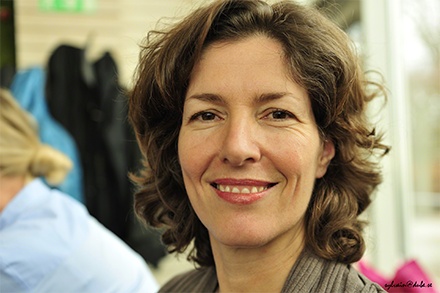Marie Claude Dubois
Marie-Claude Dubois is an architect (1993), currently employed as sustainability specialist at White architects (20%) and associate professor (80%) at the Division of Energy and Building Design, Lund University, Sweden.

Title: Daylight in the dense city
People in industrialized countries spend 90% of their time indoors. Their life is thus much affected by the conditions determined by buildings in which they dwell and work. The low levels of daylight indoors, together with an increase exposure to electric lighting and digital devices at night may result in a disrupted circadian cycle (night-day cycle). Medical research shows that a disrupted circadian cycle is linked to many modern illnesses and dysfunctions such as depression, diabetes, heart problems, sleep disorders, ADHD, obesity, etc. With increasing urban density, it becomes more difficult to provide adequate levels of daylight indoors, with the risk that humans will definitely lose their connection to natural cycles. This conference will first show examples of increasing density in Swedish cities. The relation between shadow angle and daylighting will be illustrated through one Master study. A research about residential building typology of different times and daylighting will then be presented. In conclusion, the author will provide some guidelines for maximizing daylighting indoors in the Nordic context.
She has previously been consultant for Ecooperation (Canada) and associate professor (2003-2010) at Laval University, Canada, and senior researcher (2001-2003) at the Danish Building Research Institute after award of a PhD in Building Science (Lund University, 2001). She has contributed to more 100 scientific communications in the field of low energy buildings, daylighting, and building simulation. She has participated in the lighting and energy design or certification of a number of buildings around the world. She has previously been leader of Subtask D of International Energy Agency Task 50 on “Advanced Lighting Solutions for Retrofitting Buildings” and Subtask B of IEA Task 40 on “Solar Energy and Architecture”. At the European level, she has taken part in the development of a Master’s programme on energy-efficient and environmental buildings.
After a short introduction about the benefits and risks of daylighting in buildings, Marie-Claude Dubois will present her general method and strategies for daylighting design used in a contemporary architectural practice. Relying on twenty years of experience as academic and practitioner, she will illustrate many of the design strategies and principles by results from current and past building projects. She will conclude with a brief discussion about daylight quality and methods to assess it at the design phase.

